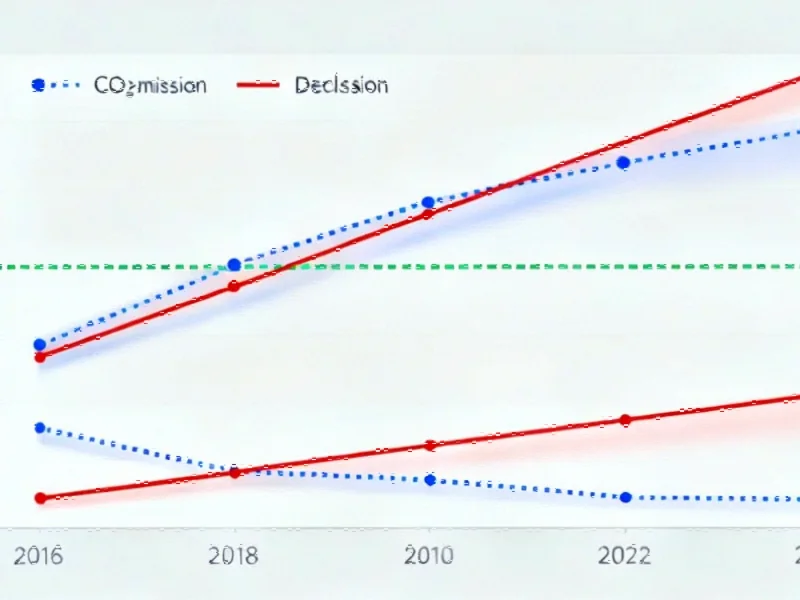Historic Shipping Emissions Vote Proceeds Despite US Opposition
Member states of the International Maritime Organization will decide Friday whether to adopt a comprehensive plan to cut carbon emissions from global shipping, according to reports from London. The vote comes despite significant opposition from the United States, which has threatened sanctions against countries supporting the measure.
Global Carbon Pricing System for Maritime Industry
The London-based IMO, which serves as the United Nations’ shipping regulatory body, voted in April to establish what would become the first global pricing system for maritime carbon emissions. Sources indicate the framework would require ships to progressively reduce emissions starting in 2028, with financial penalties for non-compliance. The shipping industry reportedly accounts for nearly 3% of global greenhouse gas emissions according to IMO data.
International Support and US Resistance
Leading up to Friday’s crucial decision, analysts suggest that China, the European Union, Brazil, Britain and several other IMO members have reaffirmed their support at a recent summit in London. However, the United States has mounted significant opposition, with President Donald Trump reportedly calling the proposal a “Global Green New Scam Tax on Shipping” in social media posts. The U.S. delegation has advocated for changing the voting process to give more weight to abstentions, a proposal that will be considered early Friday and could potentially derail the measure’s adoption.
Sanctions Threat and Global Implications
The United States has reportedly threatened countries voting in favor of the framework with economic sanctions, visa restrictions, and port levies. The report states that nations like the Philippines, which provides the most seafarers globally, and Caribbean islands dependent on cruise tourism would be particularly vulnerable to such measures. The framework needs backing from two-thirds of 108 voting IMO members who belong to the MARPOL convention for adoption.
Mechanics of the Proposed System
According to the proposed framework, ships would be charged for emissions exceeding established thresholds, with proceeds reportedly directed toward rewarding low-emission vessels and supporting climate-vulnerable nations. The system would build upon existing IMO conventions that allow signatories to inspect foreign ships during stopovers and detain non-compliant vessels, making evasion difficult even for opposing nations.
Political Divisions and Voting Expectations
Sources indicate that 63 member states that supported the Net Zero Framework in April are expected to maintain their positions, potentially joined by Pacific Island states that initially abstained over concerns about the plan’s ambition level. Meanwhile, major oil producers including Saudi Arabia, Russia and the United Arab Emirates reportedly oppose the measure, arguing it would harm economic and food security interests. The political landscape reflects broader global tensions, similar to those seen in other international regulatory discussions.
Broader Context and Industry Impact
The maritime emissions debate occurs alongside other significant global developments, including technological advancements and environmental innovations in other sectors. Since returning to power in January, President Trump has reportedly reversed Washington’s climate change policies, denouncing environmental regulations as detrimental to economic interests while promoting fossil fuel use through deregulation. The final decision could set a precedent for how the United States and the United Kingdom approach future international environmental agreements.
This article aggregates information from publicly available sources. All trademarks and copyrights belong to their respective owners.



